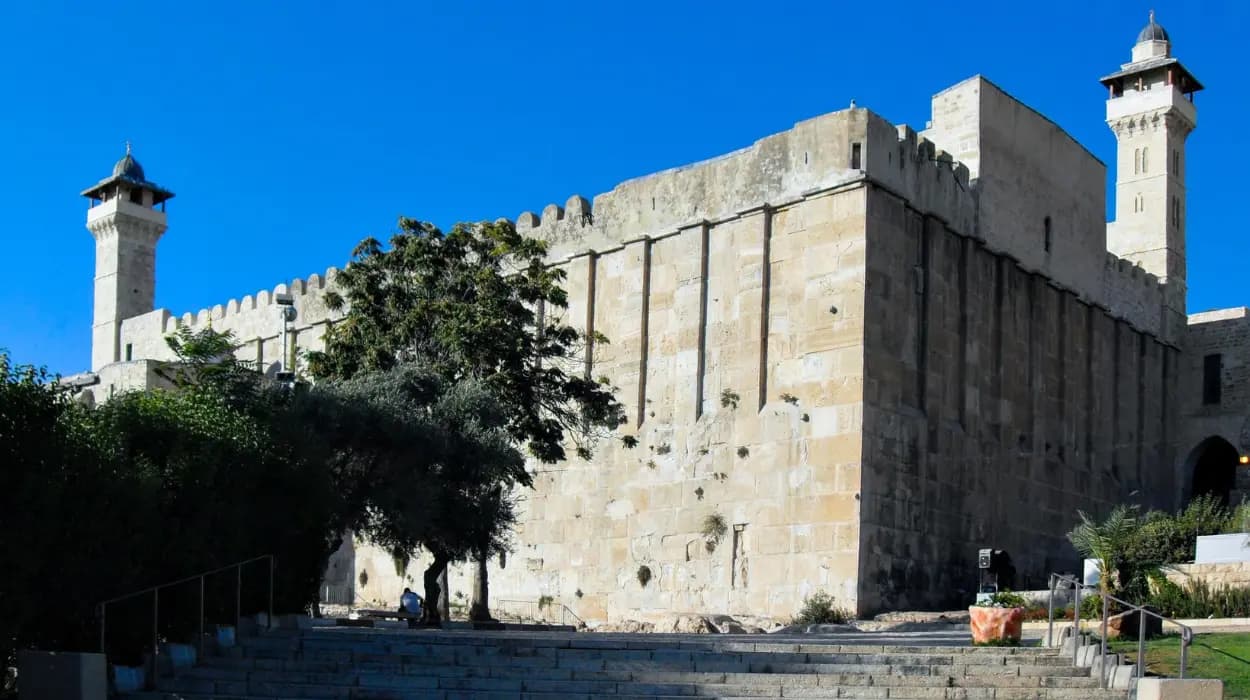Israel has officially declared the transfer of control over
a prominent mosque in Hebron to Jewish settlers, a move likely to escalate
tensions in the volatile region. The announcement has drawn widespread
international attention and sparked reactions from various political and social
actors across the Middle East.
What Has Israel Announced Regarding the Hebron Mosque?
Israel has formally announced the handover of the Ibrahimi
Mosque in Hebron, a site of significant religious and political
importance, to Jewish settler groups. This mosque, also known as the Cave of
the Patriarchs, is revered by both Muslims and Jews, making its administration
highly sensitive. The Israeli government stated that the handover aims to
strengthen Jewish claims and presence in the area amid ongoing disputes over
territorial sovereignty and religious rights.
This decision represents a significant shift in control from
Palestinian custodianship to Israeli settlers, intensifying concerns over the
future status of this contested holy site.
Why Is the Handover of the Hebron Mosque Controversial?
As reported by Guardian correspondent
Amelia Sutton, the transfer of the mosque has been met with significant dismay
from Palestinian authorities and the wider Muslim community, who view the
handover as a provocation and a violation of religious freedoms. The site
is one of the most important Islamic and Jewish religious locations, and the
move threatens to inflame longstanding tensions in the West Bank.
Moreover, Palestinians see this as part of a broader
strategy by Israel to consolidate settlements in occupied territories, which
the international community often deems illegal under international law.
What Are the Reactions from Palestinian Authorities and International Bodies?
Political leaders in the Palestinian territories condemned Israel's decision sharply. Mahmoud Abbas, the President of the Palestinian Authority, described the handover as
"a direct assault on the rights and sovereignty of the Palestinian people,"
as cited by BBC InDepth analysis. Abbas
called for an urgent meeting of the Arab League to address the implications of
the takeover.
International organisations, including the United Nations,
also expressed grave concerns. A spokesperson for UN Climate Change Relations
highlighted the potential human rights implications in their latest report on
just transitions in policy conflicts, indirectly referencing the escalating
tensions triggered by such property transfers in disputed regions.
How Has the Israeli Government Justified the Handover?
According to statements given by Israeli officials reported
on Kultura Press, the government framed the handover as a
reaffirmation of Jewish heritage and security interests in Hebron. They
stressed the necessity of ensuring the safety of Jewish worshippers amid
sporadic incidents of violence and unrest in the area.
Minister of Public Security stated,
“This is about safeguarding our people’s access to one of our holiest sites, ensuring peace through recognized control.”
However, this narrative is heavily contested by
Palestinians and many in the international community.
What Could Be the Impact on Regional Stability?
Experts warn that the handover could trigger a sharp
escalation in violence between settlers and Palestinian residents. Hebron,
already a flashpoint of conflict, could see increased protests and clashes,
risking regional stability.
A report from BBC InDepth warns that this
might also hinder ongoing peace negotiations, as the move undermines trust
between the parties and emboldens hardline factions on both sides.
How Are Local Communities Reacting?
Local Palestinian communities have vowed to resist the
transfer through peaceful protests and international advocacy. As documented
by Kultura Press, community leaders have urged the global public
and governments to hold Israel accountable for what they consider
occupation-driven policies.
Meanwhile, Jewish settler groups have marked the handover as
a historic victory, reinforcing their claims to the area and planning to increase
their presence, risking further demographic changes that could alter the status
quo.
What Are the Historical Context and Previous Incidents Related to Hebron Mosque?
The Ibrahimi Mosque has a complex history interwoven with
disputes over control and access. Historically, the site has been divided to
allow worship by both Muslims and Jews, but tensions have frequently erupted,
especially after the 1994 massacre carried out by an extremist settler, which
led to increased Israeli military presence and restrictions on Palestinian
movements around the mosque.
The latest handover marks a new phase in this troubled
history, heightening fears of further marginalisation of Palestinian
worshippers and residents.
What Has the International Community Recommended for Moving Forward?
International legal experts and observers urge a return to
negotiations prioritising shared sovereignty and mutual respect for religious
sites. Many advocate for multilateral oversight of the mosque to prevent
unilateral actions that aggravate conflict.
As outlined in the recent UN report on justice and climate
policy transitions, sustainable peace requires inclusive governance and
protection of minority rights in contested regions.
Could This Affect Broader Israeli-Palestinian Relations?
Yes, the handover is expected to have profound ramifications
beyond Hebron. Peace talks, already fragile, face another setback as
Palestinian leadership considers this action a violation of established
agreements and a unilateral attempt to redefine facts on the ground.
Observers quoted by Guardian columnist
Amelia Sutton suggest that the move may embolden settler expansionism and
harden Palestinian popular opinion against negotiations.
What Are the Next Steps Anticipated from Both Sides?
Israeli authorities are likely to consolidate control and
formalise settler administration of the mosque, while Palestinian entities may
escalate diplomatic and grassroots resistance.
The Arab League's upcoming summit, prompted by the
Palestinian Authority, may result in a collective response which could include
calls for sanctions or renewed international mediation efforts.
This development in Hebron highlights the enduring
challenges of religious, political, and territorial disputes in the
Israeli-Palestinian conflict, underscoring a pivotal moment that demands
careful attention from all stakeholders globally.
